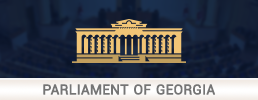2014-02-26

As Ukraine Crisis Rumbles, Georgian Premier Visits U.S. - New York Times
By MICHAEL R. GORDONFEB. 26, 2014
WASHINGTON - Prime Minister Irakli Garibashvili of Georgia met with Secretary of State John Kerry on Wednesday to discuss ways to develop his nation's economy and reinforce its pro-Western path. But the tumultuous events in Ukraine, and Moscow's decision to send a message by conducting a surprise military exercise in western Russia, have cast a shadow on the Georgian leader's visit here.
In an interview on Tuesday night, Mr. Garibashvili reflected on Russia's role and developments in Ukraine, which Georgia hopes will now move toward greater integration with Europe.
Georgia has been pursuing membership in the European Union and NATO, a bid it has reinforced by sending troops to participate in the multinational force in Afghanistan. But Georgia has been powerless to stop Russia's muscle flexing closer to home, activity that Mr. Garibashvili said had accelerated as soon as the Winter Olympics were over.
Mr. Garibashvili said Russia had resumed work on barbed-wire fences in the breakaway region of South Ossetia. Georgia, the United States and most of the world consider South Ossetia to be Georgian territory. Russia, which sent troops to occupy the area during its 2008 war with Georgia, considers South Ossetia an independent country.
"They are installing these fences, and they are calling it border," Mr. Garibashvili said. "They suspended these actions in December, and they renewed right after the Sochi Olympic Games."
Mr. Garibashvili said that Georgia would never use force to recover South Ossetia and Abkhazia, another breakaway area, but expressed hope the regions would voluntarily rejoin Georgia after it was further integrated with Europe.
"They will have a very clear picture, maybe in five years, maybe in 10 years, and they will see the difference," Mr. Garibashvili added. "And they will have to decide whether they will want to live in the darkness or live in a brighter future."
Events in Ukraine, another former Soviet republic struggling to find its own way, were also on Mr. Garibashvili's mind.
As far back as Eduard Shevardnadze, the former Soviet foreign minister who served as president of a newly independent Georgia from 1995 to 2003, Georgia leaders have said a Ukraine that sought its future in Europe would help ease the process for Georgia.
Georgian leaders plan to sign partnership and free-trade agreements with the European Union in August, a prospect likely to further irritate Russia.
"They're expecting Russian pressure between now and then not to go forward," said Kenneth S. Yalowitz, a former diplomat who served as the American ambassador in Georgia from 1998 to 2001. "If Ukraine is going forward with the E.U. it is going to make it a lot easier for Georgia."
In his interview, Mr. Garibashvili said that he hoped Ukraine would return to its "European choice" by joining Georgia and Moldova in signing a partnership agreement with the European Union-and that the West would reciprocate as well.
"I think Ukraine has quite serious economic problems. And I think the European Union, together with I.M.F. and with other international institutions, should find a solution now to solve their problems," he said. "It all matters how fast they will do this. I heard that the European Union offered 20 billion euros. I think they should be very flexible."
During his trip to Washington, Mr. Garibashvili has sought to strengthen ties by meeting with President Obama and Vice President Joseph R. Biden Jr. and by giving a well attended speech to the Atlantic Council, a nonpartisan Washington research organization.
Balancing his interest in joining NATO with his efforts to improve ties to Moscow remains challenging, at best. Georgia has argued that tying its economic policy to the West would not be damaging to Russia, but there is nothing to indicate that Russia President Vladimir V. Putin is prepared to accept that argument.
"We have to persuade them," Mr. Garibashvili said of the Russians. "We have to try. We have to show them the reality. Russia should be interested in having a reliable and predictable neighbor country."
Asked if Russia's loss of influence in Ukraine might make Moscow toughen its policy toward Georgia, Mr. Garibashvili gave a somewhat philosophical reply.
"Nothing is excluded," he said. "Georgia has already experienced that pressure from Russia when we had this war in 2008. Twenty percent of our terroritory is occupied, so what else can be done? Now Russia does not have too many economic leverages on us."
Ukraine, he said, is a different story. "Ukraine is dependent on Russia, and Russia can play with this."










